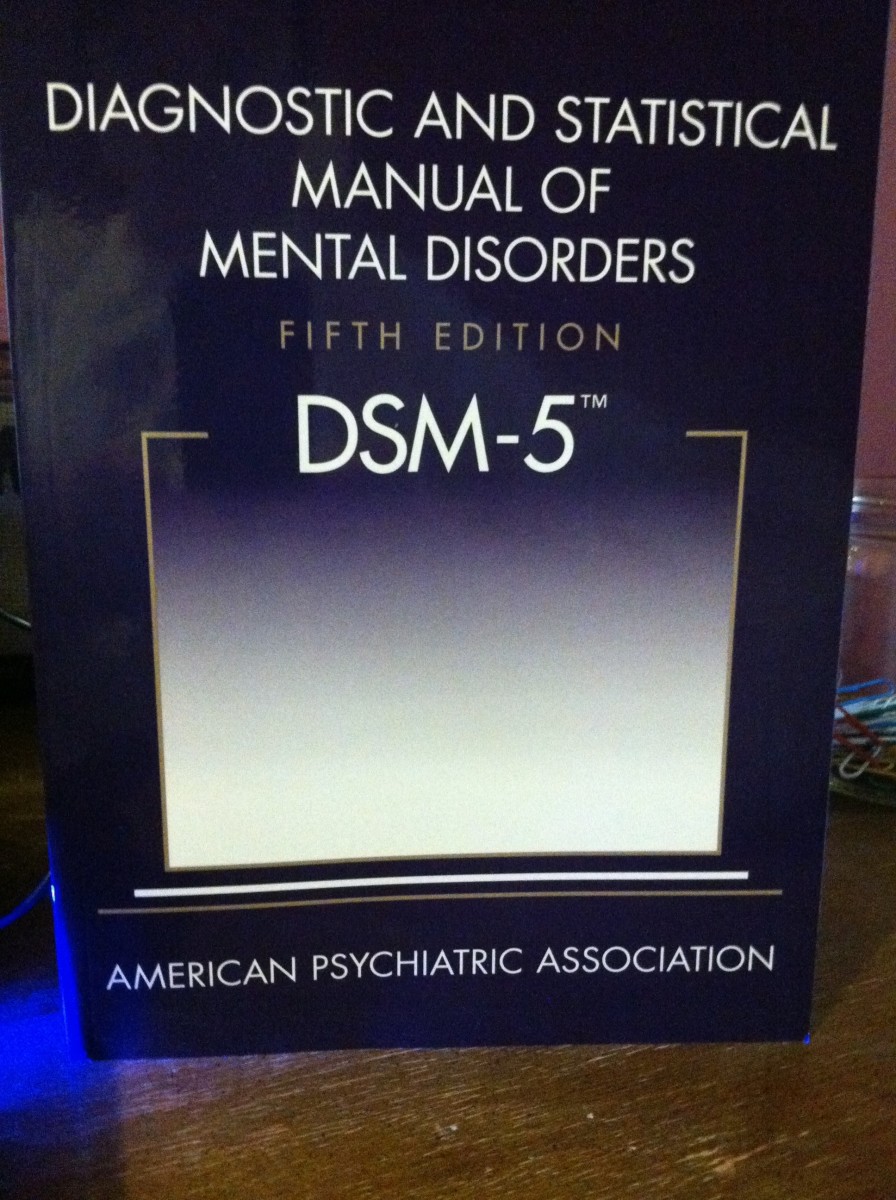Borderline Personality Traits

Personality Disorders
According to the Diagnostic and Statistical Manual of Mental Disorders (DSM-IV-TR; American Psychiatric Association 2000) is the manual used by the health professionals that list characteristics for particular psychological and emotional problems.
The book lists two main types of psychiatric symptoms: clinical disorders and personality. According to this manual Borderline Personality Disorder (BPD) is the psychiatric disorder that fits within a larger category of personality disorders. BPD was added to this manual in 1980.
The Outlook for Borderline Personality Disorder
Symptoms and Possible Causes of Borderline Personality
We each have typical ways of acting, feeling, thinking and relating to the world. A borderline personality disorder is simply a long-lasting pattern of relating to the world that doesn't work very well for the individual. It is also difficult for others to communicate with these individuals.
It affects their relationships with people, and they have difficulty reaching their life goals. Adults with this disorder admit they have struggled with the patterns for a long time, which indicate it probably began when they were children. They often have an unstable self-image.
There is a lot of evidence that suggests environmental events, such as stress, trauma, abuse, and other factors during childhood, play a strong role in many psychological problems, including personality disorders. The BPD symptoms cause the individual to make frantic efforts to avoid real or imagined abandonment.
The perception of abandonment or rejection can lead to profound changes in self-image, affect, cognition, and behavior. They may experience such intense abandonment fears they may become extremely angry, even when there is a realistic reason for a change of plans. They may experience panic or fury when someone important to them is just a few minutes late or must cancel an appointment.
They simply do not tolerate being alone and need other people with them. They may become so distraught over abandonment that they use impulsive actions, such as self mutilation or suicidal behaviors.
Unstable Relationships
These individuals typically have a pattern of unstable and intense relationships. They are also prone to sudden and dramatic shifts in their view of others. As an example, they may see the person alternately as a beneficial supporter or cruelly punitive.
- Individuals with BPD act impulsively in thee areas:
- Excessive gambling
- Spending money irresponsibly
- Binge eating
- Alcohol and/or drug abuse
- Engaging in unsafe sex or driving recklessly
People with BPD also may display an affective instability usually due to a marked reactivity of mood, which includes intense episodic dysphoria, irritability or anxiety lasting from a few hours but rarely more than a few days. This basic dysphoric mood is often described by periods of anger, panic, despair, which may reflect the person is extremely reactive to interpersonal stresses.
They often are troubled by chronic feelings of emptiness. Boredom is often a problem as they want something to do constantly. Unfortunately, people frequently express inappropriate, intense anger or they have difficulty controlling their anger, leading to expressions of extreme sarcasm, enduring bitterness, will outburst. This anger often occurs when they believe a caregiver or loved one is being neglectful or uncaring. These expressions of anger are often fueled by shame or guilt and contribute to feelings of being evil.
Frank Yeomans: Understanding the BPD Mind
Review of Stop Walking on Eggshells
There is an excellent book that explains many aspects of BDP, “Stop Walking on Eggshells: Taking Your Life Back When Someone You Care About Has Borderline Personality Disorder," written by Paul T. Mason and Randi Kreger. This is a book that's divided into three sections, and it's one of the few books that are sympathetic toward people affected with this condition.
Part One is Understanding BPD Behavior, which provides much-needed validation to children of parents with BPD. It uses many real-life scenarios which enhance your understanding.
Part Two is labeled Taking Back Control of Your Life and explains how to make necessary changes for you. It makes the statement," If you find yourself involved with an individual with BPD, you can bet that you have unfinished business with a parent". The book explains that remark in detail.
Part Three is titled Resolving Special Issues, which would include coping with a borderline child. Many times people are diagnosed incorrectly and are treated for bipolar condition when in fact they have BPD and bipolar medication does not work for them

BPD Treatment
Diagnosis of this disorder:
- A doctor or a mental health provider does a detailed assessment
- A medical history and physical exam should be done
- A psychological evaluation will be complete, which may include questionnaire
- Signs and symptoms will be reviewed also
There are no medications approved by the FDA to treat BPD. Some medications are used to treat depression, but there is no medication to treat the other symptoms. Treatment must come in the form of therapy.
BPD Therapy
Therapy is absolutely necessary for an individual to overcome BPD. Dr. Marshak Linehan is an American psychologist and author who has developed a therapy called Dialectical Behavioral Therapy.
This method is based on completing skill modules that she developed through spiritual sources, particularly ZEN. There are literally thousands of practitioners around the world using Dr. Linehan's therapy successfully. There are other types of therapy available as well.

Tough Choices When Living with Domestic Abuse
It is very difficult to live with a person who has BPD. The very nature of a volatile personality does cause you to walk on egg shells, because you know if you say the wrong thing you may become the victim of their volatile anger and possibly of physical abuse. If the individual will not seek help it is important for you to decide if you want to continue to live in this unhealthy environment.
It is even more important to consider leaving if you have children, as they are surely affected in a very negative way. Verbal, physical or sexual abuse is a reason to leave a relationship, as an abuser does not get better without help. It might be helpful for you to see a therapist also, as your self-esteem can become damaged if you have been abused.
In Conclusion
BPD is a personality disorder that causes instability in a person's life as they struggle with their emotions, identity, relationships, behavior in thinking. Not all BPD patients are alike, and it doesn't mean that they are sick, unlikable, flawed or bad people.
They need help through therapy and treatment from a trained professional. Of course, if they are not motivated to seek help, they will not improve on their own. It is imperative they want to get well.
This content is accurate and true to the best of the author’s knowledge and does not substitute for diagnosis, prognosis, treatment, prescription, and/or dietary advice from a licensed health professional. Drugs, supplements, and natural remedies may have dangerous side effects. If pregnant or nursing, consult with a qualified provider on an individual basis. Seek immediate help if you are experiencing a medical emergency.








